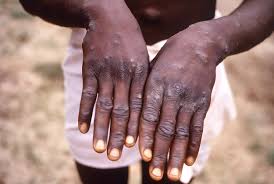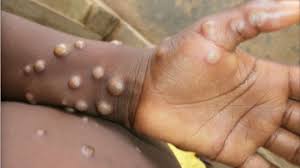The Africa Centre for Disease Control (Africa CDC) has documented a significant increase in Mpox cases across the continent, with 2,836 suspected new cases emerging in recent surveillance data.
According to the organization’s latest infectious disease report, 461 new confirmed infections and 34 deaths have been recorded, resulting in a case fatality rate of 7.4 percent.
The report highlights that children and men constitute the most affected demographic groups.
“From the data, it is expected to increase again before stabilising and initiating a downward trend toward the beginning of next year,” the CDC stated in its report, emphasizing the uncontrolled nature of the epidemic.
Children aged 15 and below represent 36.3 percent of cases, while men account for 49.3 percent of all reported infections. Over the past 10 months, the continent has documented 53,903 cases, with 11,147 confirmed cases and 1,109 deaths, establishing a 9.9 percent case fatality rate for 2024.
The disease currently affects 19 African countries, with an average of 523 confirmed cases reported weekly. The Africa CDC emphasized the crucial role of accurate testing in managing the outbreak.
“Prioritise testing individuals based on clinical symptoms and exposure risk. Accurate diagnosis relies on highly sensitive PCR tests. Testing protocols should include clear case definition, sample collection methods, and dedicated testing facilities,” the organization advised.
In response to the growing crisis, the Access and Allocation Mechanism (AAM) for Mpox is set to receive 5.85 million vaccine doses for African countries by year’s end.
The AAM has already allocated 899,000 vaccine doses to nine high-infection-rate countries, including Nigeria, following recommendations from an independent Technical Review Committee.
Last Tuesday, a significant meeting took place in Brazzaville, where experts from public health bodies met with representatives from 17 countries to develop Mpox vaccine preparedness and deployment plans.
“Given the ongoing difficulties with bringing the outbreak under control using traditional public health measures, the need for effective Mpox vaccine preparedness and deployment plans has become urgent,” the Africa CDC emphasized.
The Explainer learned the selection of countries for vaccine allocation was based on country readiness and epidemiological data, demonstrating a strategic approach to managing the outbreak.























